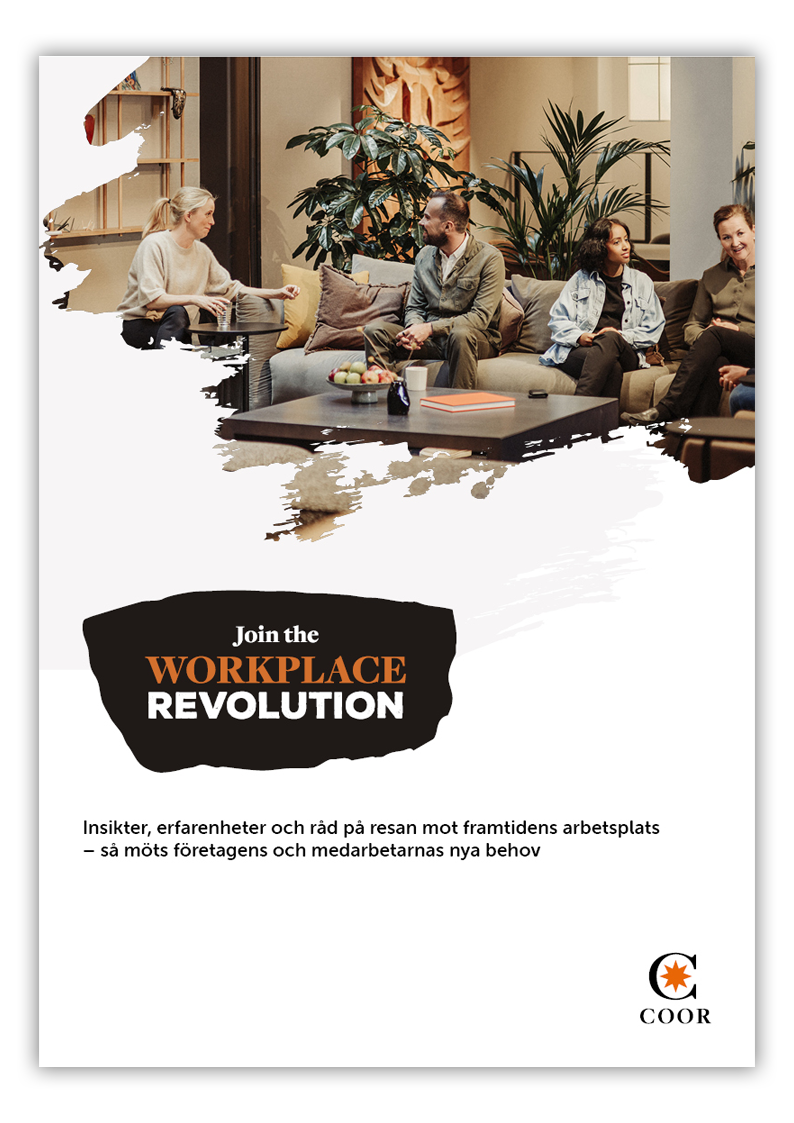Employers place mental wellbeing at the top of the agenda over the coming year. The pandemic, social isolation, war close to our borders and tougher economic conditions have highlighted these issues. Office solutions might involve creating quiet spaces for recovery and focused work, reduced noise levels and healthy food options, as well as having a corporate culture that encourages regular breaks.
“But it is not enough to say that mental health is important. Employers play a key role by setting an example and creating a culture that creates psychological safety,” AnnaCarin Grandin continues.
In recent years, Nordic companies have tried to find a new model for hybrid working and designing the workplaces of the future. Coor’s report shows that most companies have moved on from the “experimental phase” that began during the pandemic and have now introduced clear guidelines for hybrid working and when employees are expected to be in the office. Up to 20% of companies currently require their employees to work in the office full time, while 40% have introduced a set number of days each week. The Coor report also shows that 40% of employees would consider changing their employer if they are not offered flexibility and the opportunity to determine where they work themselves. However, 7 out of 10 companies are having problems with attracting employees back to the office, an increase on the previous year.
“Hybrid working models are here to stay and I believe that a culture with clear guidelines and continued flexibility are key factors in this. At the same time, companies need to create offices where employees choose to spend their time because they want to,” AnnaCarin Grandin explains.
Make-or-break for the office
In this year’s report, one in three employees states that they would consider changing their job unless the office environment improves.
“This surprised me given the recent economic climate. It clearly indicates that the office environment is now a make-or-break question for Nordic companies, and therefore it is a positive signal that as much as 77% of employers indicate that they will focus on developing their offices over the coming years,“ AnnaCarin Grandin continues.
The office also has an even crucial role in terms of establishing and reflecting the corporate culture and attracting new talent.
“When you walk into an office, you should quickly get a feeling for what kind of company you are entering.”
Opportunities to work undisturbed
After the pandemic, there has been a trend towards reducing the number of desks in favour of spaces that encourage creativity and collaboration. However, the report shows that many employees feel that this trend has gone too far. A quarter of employees listed reduced noise levels as the change that would be most likely to attract them back to the office. Almost as many indicated that improved access to spaces specifically adapted for focused work was the change they were seeking.
“I have been convinced for a long time that the office of tomorrow will be based on our human need for social interaction. But now we also see the importance of being able to focus. The report shows that this is what employees want more of in the office,” AnnaCarin Grandin explains.
Services are key to the experience
Services also play a key role in creating offices that employees choose to spend their time in. This is not just about providing attractive and suitable workspaces, but also creating a more holistic experience where services and various in-demand offerings play a key role.
“In the survey, employees indicate that food and beverage are some of the services that would attract them back to the office. The opportunity to have a well-prepared meal in contrast with the often sparse lunch of the home office, or great coffee made by a barista, are examples of services that boost the working day,” AnnaCarin Grandin continues.
The modern office is flexible, adapted for hybrid working and based on the needs of its employees, and has an equal focus on physical and mental wellbeing.
“The office will remain a place we go to for socializing, focused work and small talk over coffee. I am convinced that the office will continue to be the place where companies are built, new ideas born and lifelong friendships are developed,” AnnaCarin Grandin concludes.


